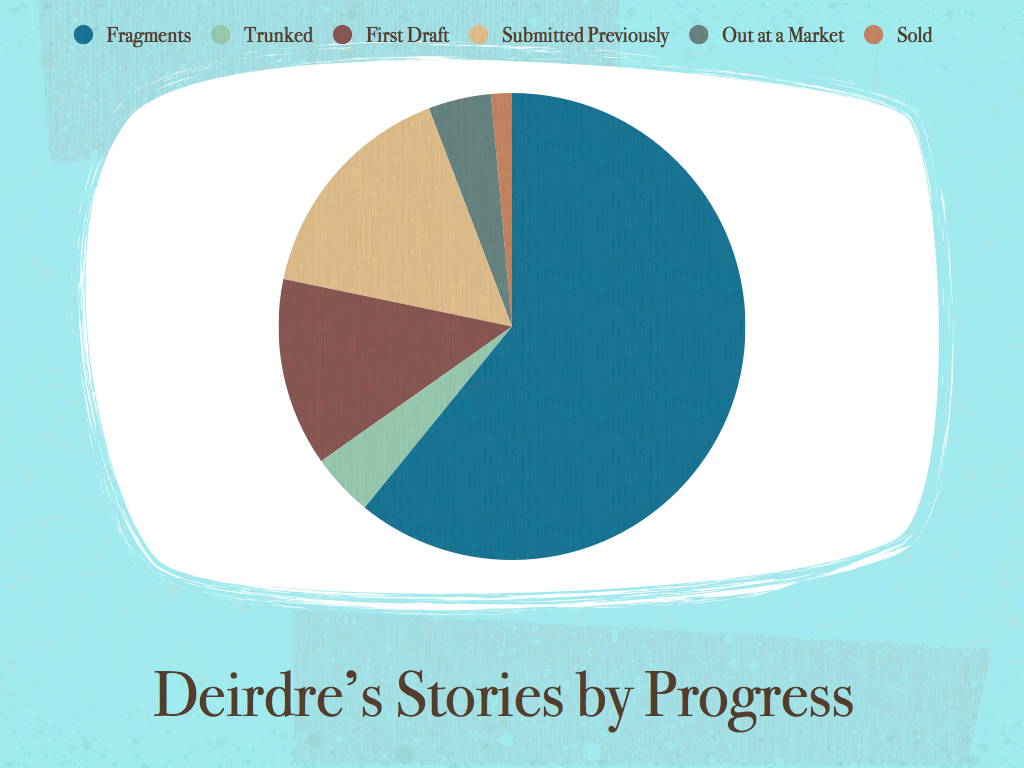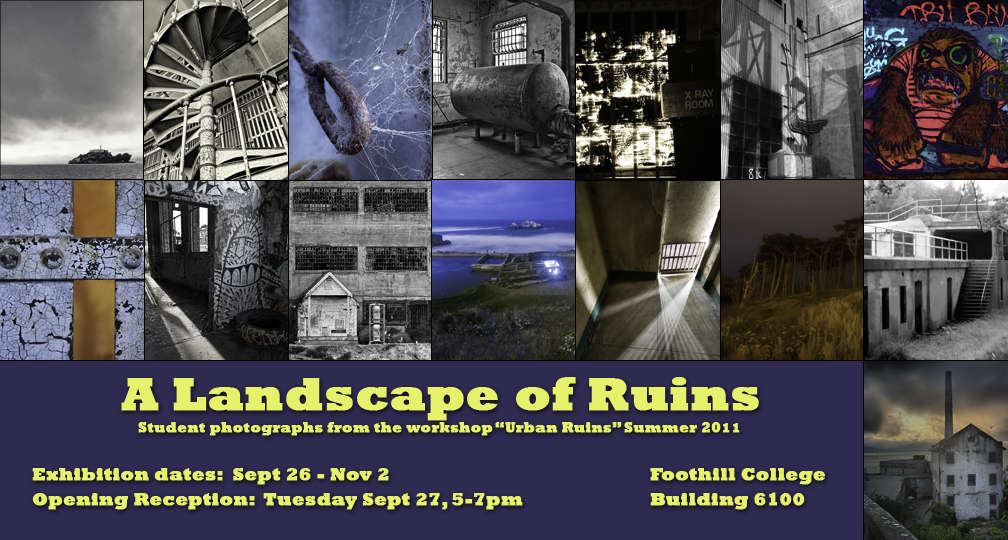Last night, I went to go see my Clarion classmate, Catherine Holm read from her collection, My Heart Is a Mountain and talk about yoga practices in writing. Karen Joy Fowler [1], one of our Clarion instructors, was also there, as well as Cat’s brother Paul Dybiec, who is a clothing designer for maternity clothing maker Japanese Weekend, so we all went out for coffee afterward.
I got to East West early [2], so I was noodling in a notebook about Disbelievers and got some good ideas. One of my standard noodling ideas is: Imagine what 100 cool things in this universe might be and write them down. You likely won’t use all 100, but the goal is to get a few new ideas that will help you. In this case, I realized what a big tentpole scene about 3/4 of the way through the book will be. It is something that’ll create an aftermath, and it’s the big scene that forces the climax.
Catherine’s stories are often about relationship with the land and environment, living as she does on a farm in northern Minnesota. They reminded me of the Vermont writers I’d heard speak on similar topics. She read a wonderful piece about a woman being taken away from her farm into community housing.
There’s something about these stories, though, that always make me feel like the weird child. Don’t get me wrong, I am the weird child, but most of the time my life feels normal to me.
Back when I was in college, we had a group writing session where we sat around a conference table and wrote on the topic of “my mother’s cooking.” We then read our entries out loud to each other. I came near the end, so I got to hear everyone’s tales of white galley kitchens and sizzling poultry, and canning.
My piece was titled “Pounding Abalone.” Here’s an excerpt.
The few times mom and I collaborated on a meal were usually on a boat working in cramped quarters. Mom and Bill [my stepfather] were avid scuba divers; I preferred to snorkel. I remember sitting up on deck while the others sought food, sitting under a light blanket (to reduce glare) while reading a book. Once, a shadow of a lobster caught my attention under the blanket, startling me. It turns out that the lobster had crawled up the blanket about four feet before I noticed it. I got my revenge though —- I boiled him.
Mom would make a great bouillabaisse, simmering the sauce all day while out catching the fish for the soup. We usually had mostly shellfish—lobster, abalone bits, tiny shrimp—rather than fish.
By far my favorite sea dish was the one I usually got to prepare -— abalone. Abalone clings very hard to rocks and has to be pried not only off the rock but out of its shell. Once out, it doesn’t have the decency to just sit there and behave. No, it has to crawl all over. Abalone is inherently tough, so I would pound it with a meat tenderizer as it crawled across the cutting board. I’d stop wailing on it with the metal tenderizer and watch it to see if it had stopped moving, but it would curl up its edges and slide away.
When we were getting ready to cook, I’d cut the abalone up, but even that didn’t prevent it crawling. It would move in my hands as I rolled it in the batter mom made. Then, when she put it on the sizzling pan, only then would it stop moving.
Since the last time mom and I went out boating together, I’ve never had abalone properly prepared. I’m not sure if it was my pounding or her cooking, but perhaps it was simply the magic of shared experience.
I think everyone was horrified, but then I never heard tales of plucking chickens….
One of the people at the reading was a licensed therapist who asked some interesting questions. She specifically asked about ego in writing. I can’t remember the exact question she asked because my mind was already racing with the question’s implications, but it made me realize what it was that bothered me about the “thou shalt outline” writers: they’re ego and super-ego writers. I’m an id writer. I describe my writing as backing into a story with blinders: I can only see where I’ve been — at least until the story catches, and at many points thereafter. That is, by definition, id writing. It’s also why my first drafts can be so craptastic.
This is, btw, one of two reasons I dropped out of James Gunn’s workshop: it simply wasn’t compatible with my process.
Also, one of the writers who’s been on an e-mail list of women writers said that, for years, people were discussing craft issues. About a year ago, this flipped, and now most of the discussions were about marketing. This has depressed me as well; I’ve been noticing it more and more.
[1] A big thank you to Shweta Narayan. When I was having a rough emotional time a couple of years ago, I asked her for recommendations for a light book to help me through, and she recommended Karen’s Wit’s End. It was perfect, just exactly what I needed, and it was really nice to be able to tell Karen that.
[2] Due to a short in a power strip that tripped the circuit breaker to my office. Great.
Read More


